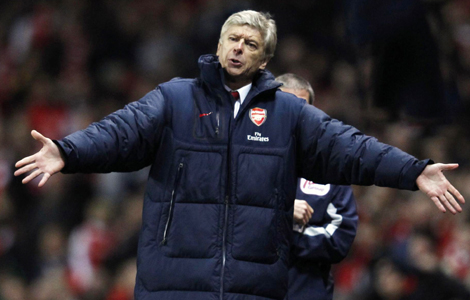|
|||||||||||
Property
The cooling of the property market is another major factor set to drag down GDP growth in 2012, Yu said.
Property investment accounts for around a fifth of China's fixed-asset investment, another major engine driving the country's growth.
China has introduced higher down payments, home ownership limits, property tax trials and the construction of low-income housing to rein in runaway property prices since April 2010.
Yao said large-scale low-income housing projects will offset the slowdown of fixed-asset investment caused by property regulation.
China plans to begin construction on at least 7 million government-subsidized affordable housing units in 2012, adding to the 10 million units already under construction in 2011.
Yu warned that drastic slumps in housing prices could sour property mortgage loans and cause financial risks while threatening local government coffers.
Some regional governments will face certain pressure in 2012, a peak time for local governments to pay off their debts, as tax revenues and land sale incomes fell due to property controls, he said.
China's auditing agency said local government debt totaled about 10.7 trillion yuan ($1.69 trillion) at the end of 2010, or about 27 percent of the GDP.
Risks from local government debts and property loans are controllable, central bank governor Zhou Xiaochuan said earlier this month.
Inflation
The central bank made countering inflation its priority with tightened monetary measures before unleashing signals of easing these measures in December, when it reduced banks' reserve requirement ratio by 50 basis points for the first time in three years.
The year-on-year growth of the consumer price index (CPI), a main gauge of inflation, eased to 4.1 percent in December from a peak of 6.5 percent in July.
While some analysts look for clues of further monetary easing as inflation softens, others say that long-term inflationary pressure still exists.
Slower economic growth in 2012 does not mean less threat of inflation and it remains difficult to keep annual CPI growth within the 4-percent target, said Wang Jun, a researcher at the China Center for International Economic Exchanges.
He cited the vulnerability of the country's grain and pork production and possible rises in international grain and energy prices.
Reforms may be sped up in 2012 to make the pricing mechanism of resource products more market-oriented, which is also likely to hike energy prices, Wang said.
In the longer term, excessive global liquidity resulting from European and US monetary easing and rising production costs in China will keep inflationary pressure in place, Yu said.
He predicted that the CPI will rise 4.6 percent year-on-year in 2012, slowing from the 5.4 percent in 2011.
The government should increase its tolerance of inflation and advance pricing reforms to let the market play a bigger role in adjusting supply and demand, he urged.
Consumption
As the magic of exports and investment wanes, many in China pin hopes on tapping the potential of domestic consumers for a better-structured and more sustainable economy.
Final consumption contributed to 47.9 percent of national economic growth in the first three quarters of 2011, up 15.2 percentage points year-on-year, NBS chief Ma Jiantang wrote in an article published on Monday.
Lu also expressed confidence in boosting consumption, saying it will benefit from the smaller income gap as the income growth of rural residents outpaced that of urban residents in 2011.
The government set the target for annual GDP growth at 7 percent, while aiming for annual income growth of more than 7 percent.
Meanwhile, some economists worry that the progress in boosting consumption is too slow.
"China can not become consumption-driven in one night, there must be a transitional period, when both consumption and investment are given equal weight," said Li Yining, a renowned Chinese economist.
Without such a transition, the GDP growth will fall sharply, maybe to as low as 5 percent, he warned.
Inadequate corporate innovation and a lack of substantial progress in boosting consumption has made it hard for China to restructure and adjust the growth pattern as fast as is needed, Yao Jingyuan said.
"For the Chinese economy of 2012, I suggest we be mindful of adversities and stay prepared," he said.
Hot Topics
Kim Jong-il, Mengniu, train crash probe, Vaclav Havel, New Year, coast guard death, Internet security, Mekong River, Strait of Hormuz, economic work conference
Editor's Picks

|

|

|

|

|

|






